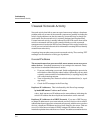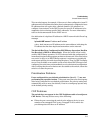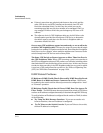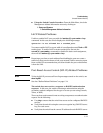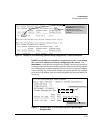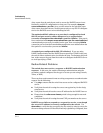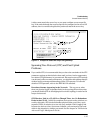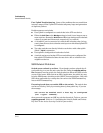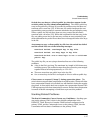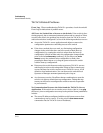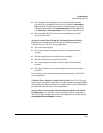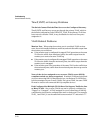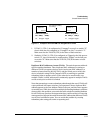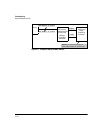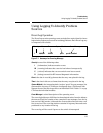
Troubleshooting
Unusual Network Activity
Fast-Uplink Troubleshooting. Some of the problems that can result from
incorrect usage of Fast-Uplink STP include temporary loops and generation
of duplicate packets.
Problem sources can include:
■ Fast-Uplink is configured on a switch that is the STP root device.
■ Either the Hello Time or the Max Age setting (or both) is too long on one or
more switches. Return the
Hello Time and Max Age settings to their default
values (2 seconds and 20 seconds, respectively, on a switch).
■ A “downlink” port is connected to a switch that is further away (in hop
count) from the root device than the switch port on which fast-uplink STP
is configured.
■ Two edge switches are directly linked to each other with a fast-uplink
(Mode =
Uplink) connection.
■ Fast uplink is configured on both ends of a link.
■ A switch serving as a backup STP root switch has ports configured for
fast-uplink STP and has become the root device due to a failure in the
original root device.
SSH-Related Problems
Switch access refused to a client. Even though you have placed the cli-
ent’s public key in a text file and copied the file (using the copy tftp pub-key-
file command) into the switch, the switch refuses to allow the client to have
access. If the source SSH client is an SSHv2 application, the public key may
be in the PEM format, which the switch (SSHv1) does not interpret. Check the
SSH client application for a utility that can convert the PEM-formatted key
into an ASCII-formatted key.
Executing ip ssh does not enable SSH on the switch. The switch does
not have a host key. Verify by executing show ip host-public-key. If you see
the message
ssh cannot be enabled until a host key is configured
(use 'crypto' command).
then you need to generate an SSH key pair for the switch. To do so, execute
crypto key generate. (Refer to “2. Generating the Switch’s Public and Private
Key Pair” in the Access Security Guide for your switch.)
C-16



